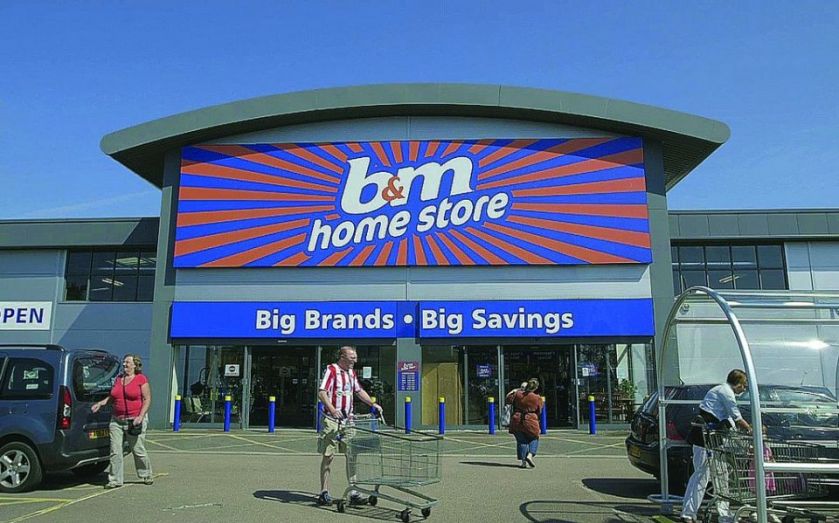B&M eyes more stores as sales jump by a third

Bargain retail chain B&M has hiked its store expansion targets after reporting a near 30 per cent jump in revenue in its first year as a public company.
The company, which sells everything from toys to electrical goods and furniture, yesterday said sales jumped 29.5 per cent to £1.6bn in the year to 28 March, boosted by 52 new store openings and the £66m acquisition of a majority stake in German value retailer Jawol.
As a result adjusted profit before tax increased by 55.7 per cent to £135m from £86.7m last year, beating consensus forecasts for £130m of profits.
Chief executive Simon Arora said: “For many shoppers across the UK, B&M is now an established part of their regular shopping habits and, In tandem with our strong roll-out programme, this has enabled us to become one of the leaders in the rapid growth of value-led retailing in the UK.”
The discount retail sector, both in general merchandise and food, has boomed since the recession with Aldi and Lidl, Poundland, Poundworld and Primark all grabbing market share as squeezed consumers continue to go in search of a bargain.
However, discounters have not been immune to price deflation led by the supermarket price wars and fierce competition in the market, with B&M reporting a slowdown in like-for-like sales growth to 4.4 per cent from 6.5 per cent last year.
The chain will ramp up its expansion this year to 60 store openings this year compared with the 45 previously guided, and targeting parts of the UK like the south where it has little exposure.
PROFILE: ARORA BROTHERS
Simon Arora and his brother Bobby were clearly gifted with the Midas touch long before they bought the loss-making B&M chain in 1994 and turned it into a £1.6bn business.
The older of the two Manchester-born brothers, Simon (pictured) studied law at Cambridge University after his father, who owned a cash and carry business, allegedly encouraged him to follow in India’s first prime minister Jawaharlal Nehru’s footsteps.
He went on to work as a management consultant at McKinsey, Barclays and the investment company 3i before deciding to head back north-west and join forces with brother Bobby, who had worked for the family business after leaving school.
In 1995, they founded Orient Sourcing, which supplied high street retailers such as as Argos and Bhs with cheap homewares and soft furnishings sourced from China and other markets in the Far East.
They sold that business for a £30m profit to Lambert Howarth, one of Marks & Spencer’s biggest suppliers, and were looking for a new venture when they came across B&M.
The bargain chain, founded in 1978 by Malcolm Billington in Blackpool, was in sore need of a turnaround when they bought it from Phildrew Investments.
But the willingness of shoppers to travel up to an hour to visit the stores is what caught their attention – its 21 stores attracting 15,000 shoppers a week.
Benefiting from the demise of Woolworths and the onset of the recession, which fuelled demand for bargain goods, the brothers have expanded B&M using a simple strategy of selling a limited range of well-known branded products sourced from suppliers in the Far East and manufacturer clearance sales at knock down prices.
In 2012, the chain attracted the attention of private equity giant Clayton, Dubilier & Rice, which acquired a 60 per cent stake and netted the Arora brothers a small fortune.
Tesco boss Sir Terry Leahy joined as chairman, helping to steer it to market last year and resulting in a £1bn payday for shareholders. A year on, shares are 20 per cent above their initial offer price at 324p, valuing B&M at £3.3bn. The Arora brothers have not lost their Midas touch yet.